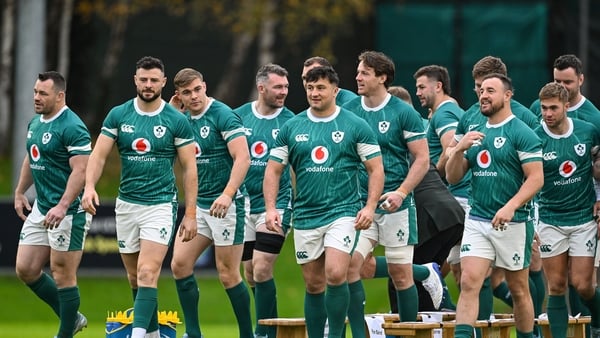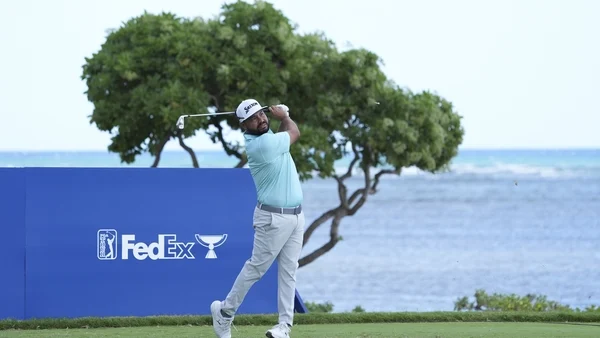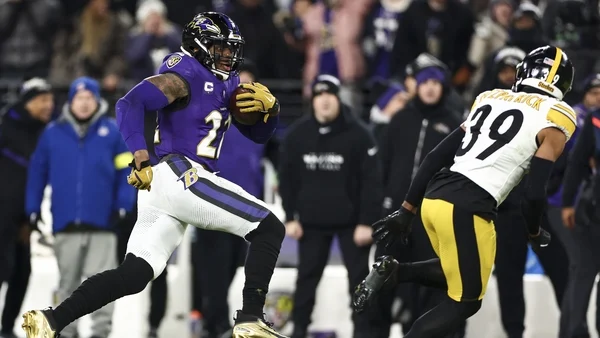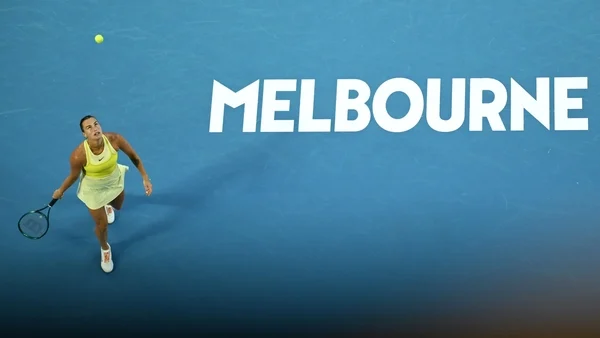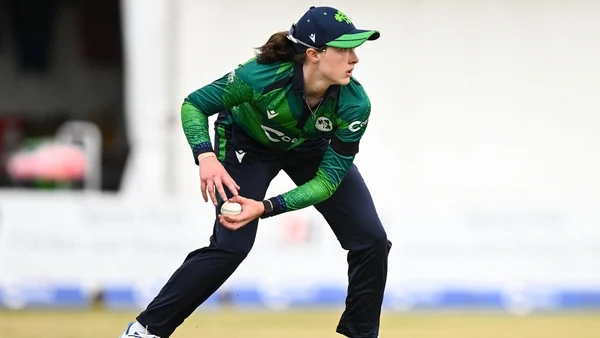The reaction to last week's 23-13 defeat to New Zealand is a good barometer of what we’ve come to expect from this Ireland team.
It’s not long ago that a 10-point defeat against the All Blacks would have been viewed as a decent outing and something to build on, but not anymore.
The standard has been set in the last decade, first under Joe Schmidt and now under Andy Farrell.
A defeat isn’t a disaster, but it will be examined more forensically than it might have been a decade ago. Three defeats in five games means that hard questions are being asked, both of the short-term game plan and long-term strategy.
Speaking after last Friday’s defeat, Farrell was quick to stress that Ireland haven’t become a bad team overnight. And while he’s correct in saying they haven’t become a bad team, their dip in form hasn’t happened overnight.
The last five games have presented a consistent set of issues – spanning Six Nations, summer and autumn windows – with poor discipline ruining what is an otherwise world class defence, and a setpiece that is making their attack blunt.
In their last two games they’ve limited South Africa and New Zealand to one combined try and have given up just 11 tries in total across their eight games this year, ranking best among the world’s top-tier nations for 22 entries given up per game (6.4) and points conceded per 22 entry by their opponents (1.7).
The issue is that while Simon Easterby’s defence is proving so hard to break down, their lack of discipline is allowing their opponents keep the scoreboard ticking over.
While they have given up just one try in their last two games, their opponents have scored a staggering 42 points from penalties alone. Against the Springboks in July, all 24 of South Africa’s points on the night came from Handre Pollard’s eight penalty kicks, while last Friday Damian McKenzie had a personal haul of 18 from three-pointers alone.
With that in mind, the more cynical view would be that Ireland are conceding so few tries because teams are being given a shot at three points before they get to the 22.
Of those penalties in 2024, 46% have been conceded between halfway and their own 22, considerably higher than any other nation, and something that is affording their opponents constant opportunities to apply scoreboard pressure.
On the other side of the ball, the lineout has been an issue going back to before the Rugby World Cup in 2023, and despite some improvements in the early rounds of the Six Nations, it continues to be an inconsistent platform for Ireland’s attack.
Referring back to the efficiency of their defence, their attacking stats are at the other end of the scale. Scoring 2.5 points per entry to the opposition 22, only England and Wales have a lower return.
In large part that inefficiency is coming from the lineout. While the average for the year has been around 86%, the areas Ireland are winning their ball is making it more difficult to launch dangerous attacks.
The forwards have now gone five games without scoring a maul try, having scored five tries in their previous four games from their lineout drive.
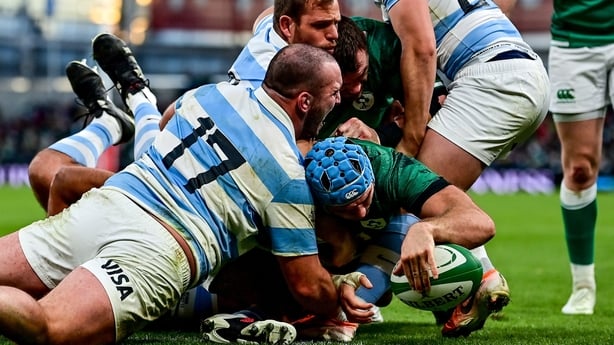
This weekend’s opponents Argentina have never beaten Ireland in Dublin, but Felipe Contepomi’s side may never have a better opportunity to do so.
When they last came to Ireland in November 2021, they were a team who had lost a large chunk of ground due to the Covid-19 pandemic, which ultimately saw the Jaguares leave Super Rugby and the majority of their home-based players moving to new clubs around the world.
Under Michael Cheika, they recovered from a slow start at the World Cup to reach the semi-finals and ultimately finish fourth, after which Cheika moved on and handed the team over to former Leinster out-half and coach Felipe Contepomi.
Los Pumas are still wildly inconsistent, with a low floor and high ceiling to their performances, but their results in 2024 show they are a team that have to be taken seriously.
While they finished third in the Rugby Championship, they picked up a win apiece against South Africa, New Zealand and Australia, the first time they’ve ever beaten all three in one campaign. Their win against the Wallabies in particular was spectacular, as they inflicted a record-breaking 67-27 defeat on Joe Schmidt’s side.
There’s a strong Irish influence on their coaching, not just from Contepomi’s time at Leinster, but also through Portlaoise man Alan Kingsley, who works as their kicking coach.
Last week they ran in seven tries in a 50-18 hammering of an Italian side that had been hugely competitive in the Six Nations, and Contepomi (below) has been able to improve their team further this week.
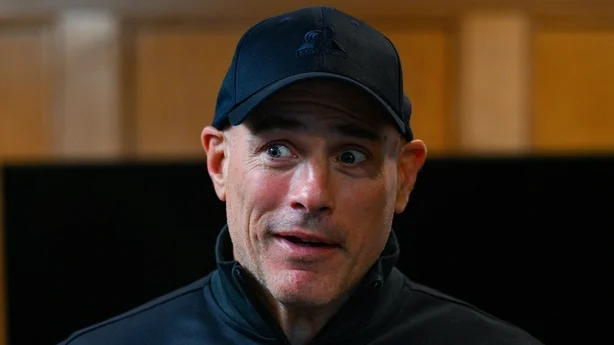
Experienced flanker Pablo Matera returns to the side following suspension, while Bordeaux-Begles' lock Guido Petti is restored to the engine room and Matias Moroni comes in at centre for Matias Orlando.
If they do pull off a famous win at Aviva Stadium tonight, it won't be down to complacency on Farrell’s part.
The Ireland head coach has gone strong with his starting team for the second week in a row, making just one change as Robbie Henshaw slots in at inside centre to replace Bundee Aki, in what is close to a full-strength side.
Craig Casey and Ryan Baird have been promoted to the bench where they will inject some energy in the second half, with the only experimentation, as such, coming in debuts for Sam Prendergast and Thomas Clarkson.
Clarkson’s debut comes following injuries to Tadhg Furlong and Tom O’Toole, while Oli Jager has also been sidelined since earlier this season.
The 24-year-old is closing in on 50 games for Leinster already in his career, and is likely to get some good game time, with Finlay Bealham having played close to 80 minutes last week.
Prendergast’s debut had been in the post for a while, with the 21-year-old having been involved in senior squads across the last 11 months, and Farrell has backed the out-half to deliver on a big night.
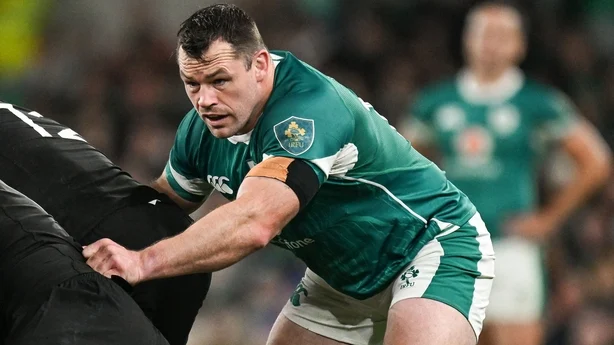
It’s more than three years since Ireland have lost two games in a row, with those coming in the opening two games or the 2021 Six Nations, and history has shown that they rarely follow one disappointing performance with another.
It was notable in the week after the first Test defeat to South Africa in the summer that Farrell and his players were open and honest about how critical the head coach had been to the squad, and it got the desired reaction as they came out in the second Test like a team that had something to prove.
One of Farrell’s greatest strengths according to those who have played under him has been his ability to read a room and know whether it’s a carrot or stick week.
If the players don’t respond, the Pumas will be ready to pounce.
Verdict: Ireland
Ireland: Hugo Keenan; Mack Hansen, Garry Ringrose, Robbie Henshaw, James Lowe; Jack Crowley, Jamison Gibson-Park; Andrew Porter, Rónan Kelleher, Finlay Bealham; Joe McCarthy, James Ryan; Tadhg Beirne. Josh van der Flier, Caelan Doris (capt).
Replacements: Rob Herring, Cian Healy, Thomas Clarkson, Ryan Baird, Peter O'Mahony, Craig Casey, Sam Prendergast, Jamie Osborne.
Argentina: Juan Cruz Mallia; Rodrigo Isgro, Lucio Cinti, Matias Moroni, Bautista Delguy; Tomas Albornoz, Gonzalo Bertranou; Thomas Gallo, Julián Montoya, Joel Sclavi; Guido Petti, Pedro Rubiolo; Pablo Matera, Juan Martin Gonzalez, Joaquin Oviedo.
Replacements: Ignacio Ruiz, Ignacio Calles, Francisco Kodela Gomez, Franco Molina, Santiago Grondona, Gonzalo Garcia, Santiago Carreras, Justo Piccardo.
